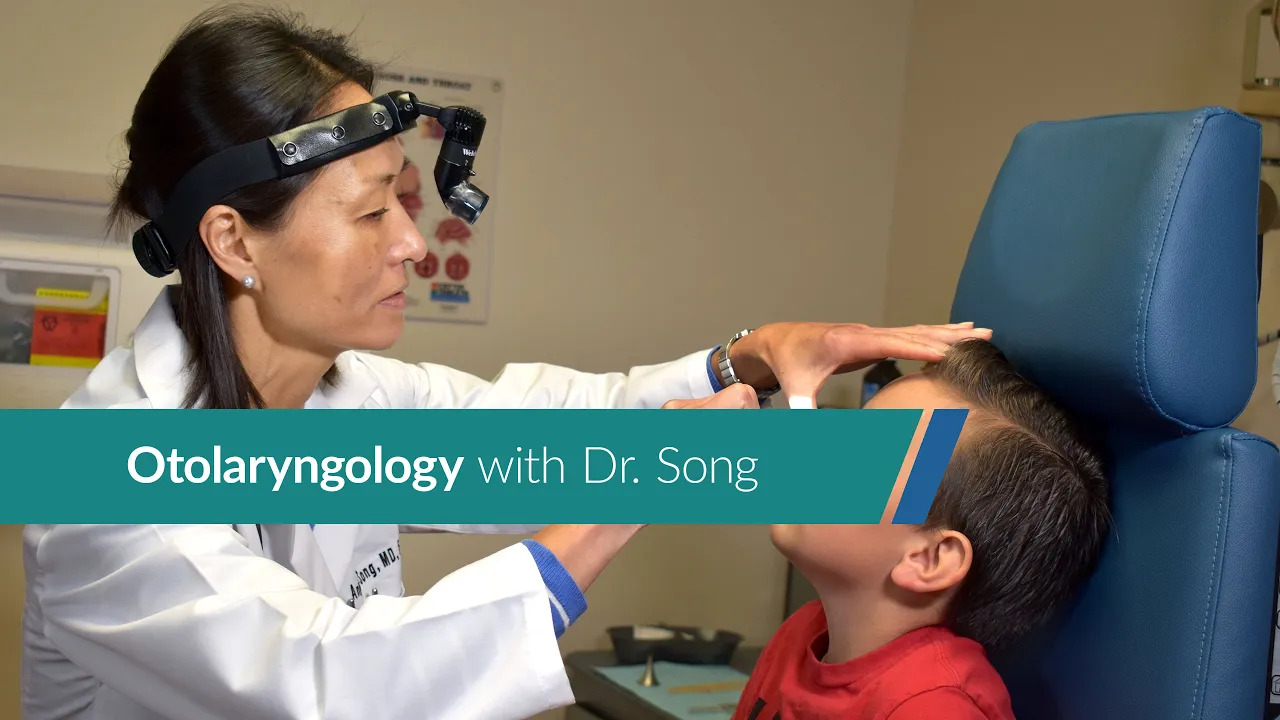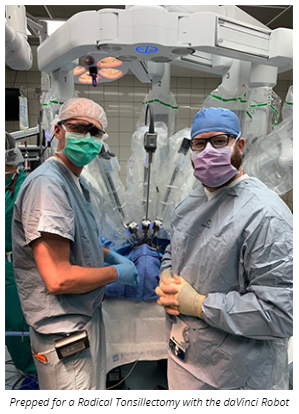ENT Surgical Interventions Options for Sinus Blockage: What to Expect
Discovering the Area of Otolaryngology: What to Anticipate When You Get In Touch With an ENT
Otolaryngology, typically described as ENT, includes the diagnosis and treatment of throat, nose, and ear disorders. For those experiencing relevant problems, seeking advice from an ENT specialist can offer clarity and alleviation. Comprehending what to expect throughout such examinations is crucial for effective communication and care. This overview will describe key facets of the ENT experience, including usual reasons for visits and the procedures included in medical diagnosis and treatment.

Understanding Otolaryngology: An Introduction
Otolaryngology, frequently referred to as ENT (Ear, Nose, and Throat) medicine, is a specialized branch of medication that concentrates on the medical diagnosis and therapy of problems influencing these critical locations of the body. This field includes a wide variety of conditions, including those associated to hearing, balance, respiratory system function, and speech. Otolaryngologists are trained to manage both clinical and medical treatments, utilizing sophisticated strategies and technologies. Their proficiency expands past conventional conditions, resolving problems such as allergies, sinus infections, and hearing loss. Furthermore, they play a vital role in the monitoring of head and neck cancers, providing thorough treatment tailored to private person needs. In general, otolaryngology continues to be essential for maintaining wellness and lifestyle in afflicted people.
Usual Reasons to See an ENT Expert
Lots of people seek the expertise of an ENT professional for a range of factors, reflecting the varied nature of problems that influence the ear, nose, and throat. Usual problems consist of persistent sinus problems, which frequently brings about persistent nasal congestion and face discomfort. Allergic reactions and their linked signs and symptoms, such as sneezing and itching, also prompt check outs to these experts (ENT). Hearing loss, whether gradual or sudden, is another substantial factor for appointment. In enhancement, people might look for examination for throat conditions, including consistent hoarseness or swallowing problems. Rest apnea, defined by disrupted breathing during sleep, is regularly attended to by ENT experts. Each of these conditions highlights the importance of specialized treatment in handling complex ENT-related health issues
Preparing for Your ENT Consultation
When getting ready for an ENT visit, it is vital to gather pertinent info and consider any kind of certain worries. Patients must put together a thorough case history, including previous ear, nose, or throat problems, surgeries, and present medications. Documenting signs and symptoms-- such as duration, intensity, and regularity-- can give important understandings for the ENT specialist. In addition, people need to prepare a listing of inquiries they want to ask, making sure that all concerns are addressed during the go to. Bringing along any kind of appropriate medical documents or test results can further help the ENT in understanding the person's condition. Patients must verify their appointment details, including time, location, and day, to lessen any last-minute confusion. Correct prep work can improve the performance of the consultation and lead to better outcomes.
What to Anticipate Throughout the Appointment
As the assessment begins, the client can expect to engage in a detailed conversation with the ENT professional about their symptoms and case history. The professional will certainly ask about the period, regularity, and seriousness of signs such as hearing loss, nasal blockage, or sore throat. Additionally, the patient's previous clinical conditions, drugs, and any type of appropriate family background will be reviewed, aiding the professional in forming a full understanding of the individual's health. The ENT might additionally inquire about way of life aspects, such as direct exposure to irritants or allergens. This open discussion establishes a structure for the assessment, guaranteeing that the patient's worries are dealt with and setting the stage for any kind of needed examinations or suggestions for therapy.
Diagnostic Examinations and Procedures in Otolaryngology
A series of diagnostic examinations and treatments are crucial in otolaryngology to accurately review and diagnose problems influencing the ear, nose, and throat. Typical tests include audiometry, which gauges hearing function, and tympanometry, analyzing center ear pressure. Nasal endoscopy allows visualization of the nasal flows and sinuses, while laryngoscopy checks out the throat and singing cords. Imaging techniques, such as CT scans and MRIs, offer detailed views of head and neck frameworks. Allergic reaction testing might additionally be carried out to identify triggers for sinus or respiratory system issues. These analysis tools make it possible for ENT specialists to establish an extensive understanding of patients' conditions, guaranteeing customized and reliable monitoring plans. Appropriate medical diagnosis is vital for effective therapy end results in otolaryngology.
Therapy Options Provided by ENT Specialists
ENT experts supply a variety of treatment alternatives customized to deal with particular conditions influencing the throat, ear, and nose. These therapies vary from conventional methods, such as medicine and way of life alterations, read this to even more invasive procedures. As an example, allergies may be taken care of with antihistamines or immunotherapy, while chronic sinusitis could require nasal corticosteroids or sinus surgical procedure. For hearing loss, ENT experts commonly advise listening device or medical interventions like cochlear implants. In cases of throat disorders, alternatives can include speech therapy or operations to eliminate obstructions. In addition, they might offer support for taking care of rest apnea, including using CPAP tools or surgical treatments. In general, the objective is to improve patients' quality of life through customized care and effective treatment methods.
When to Seek Follow-Up Care With an ENT
Identifying when to look for follow-up treatment with an ENT professional is vital for handling recurring signs and symptoms or complications associated with ear, nose, and he has a good point throat problems. Individuals ought to consider scheduling a follow-up consultation if signs linger regardless of first treatment, such as chronic ear pain, nasal blockage, or throat pain. Modifications in hearing, balance issues, or uncommon nasal discharge might also call for further examination. Additionally, if an individual experiences side effects from suggested drugs or has actually undertaken a medical procedure, follow-up treatment is essential to keep an eye on recuperation and resolve any issues. Prompt consultations can guarantee efficient monitoring of conditions, prevent potential problems, and give satisfaction relating to one's wellness. Looking for follow-up treatment promotes proactive health management in otolaryngology.
Regularly Asked Concerns

What Qualifications Should I Look for in an ENT Professional?
When seeking an ENT specialist, one must search for board qualification, pertinent experience, and solid client reviews. In addition, reliable interaction skills and a caring technique can significantly enhance the general therapy experience.
Just how Do I Pick the Right ENT for My Requirements?
Choosing the right ENT expert involves evaluating their qualifications, experience, and client testimonials (Sinus). It is important to contemplate their communication style and technique to treatment, guaranteeing they line up with the person's details health needs and preferences
Exist Any Type Of Risks Linked With ENT Procedures?
The threats related to ENT procedures may include infection, bleeding, anesthetic issues, and prospective damage to surrounding structures. Individuals must review these threats with their doctor to comprehend private issues and guarantee informed decisions.
Just How Can I Handle Anxiety Prior To My ENT Consultation?
To handle stress and anxiety prior to a visit, people can exercise deep breathing exercises, picture favorable outcomes, prepare questions beforehand, and look for assistance from close friends or family members, promoting a sense of reassurance and peace.
What Should I Do if I Experience Side Impacts From Treatment?
If negative effects from therapy occur, the individual ought to quickly report them to their doctor. Adjustments to therapy or extra interventions might be required to guarantee security and effectiveness in handling their condition - ENT surgery. As the examination begins, the individual can expect to involve in a detailed discussion with the ENT professional regarding their symptoms and clinical background. These diagnostic devices allow ENT specialists to create a detailed understanding of patients' problems, guaranteeing customized and reliable deafness monitoring plans. ENT professionals supply a selection of therapy alternatives tailored to deal with specific conditions impacting the throat, nose, and ear. When looking for an ENT professional, one should look for board qualification, relevant experience, and solid person reviews. Selecting the best ENT specialist includes reviewing their credentials, experience, and patient testimonials